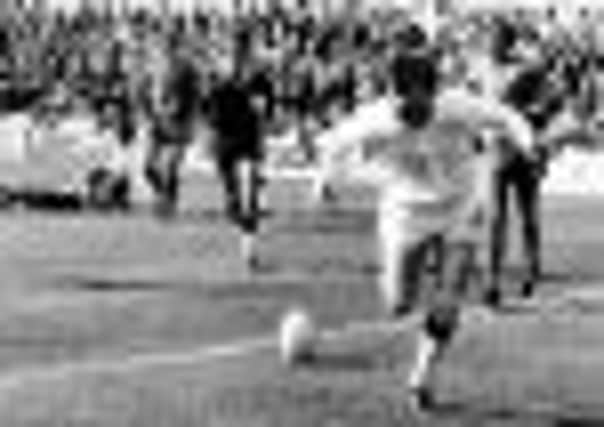Sporting Bygones: Split decision was understandable but enabled Australia to take vice-like grip on the World Cup


It is heartening to remember that Great Britain held their own during the tournament’s formative years, winning three of the first six as they enjoyed parity with Australia.
They emerged victorious from the inaugural event in 1954 when Huddersfield’s Dave Valentine lifted the trophy after defeating hosts France, did so again in 1960, and once more in 1972.
Advertisement
Hide AdAdvertisement
Hide AdAdmittedly, as is painfully well known, that was the last time either Great Britain or England would be crowned as the world’s finest.
At the next staging of the World Cup, three years later in 1975, the format was drastically altered to run over a period of eight months with every team playing each other home and away.
Great Britain, perhaps fatefully in hindsight, decided to split into separate England and Wales sides, thus increasing the number of participants to five alongside Australia, New Zealand and France.
At the time, the decision was understandable; Wales had a raft of stellar talent in their ranks and, in the particular game pictured here, included seven who had played, or would play later, with Great Britain.
Advertisement
Hide AdAdvertisement
Hide AdIt shows Leeds great John Holmes, weaving his way over for England in a 22-16 success for his side against Wales at Warrington’s Wilderspool ground on September 20, 1975.
Left in his wake is a fellow legend of the sport, Wales winger Clive Sullivan, who was then playing for Hull KR.
They had been team-mates for the Lions as they won the World Cup three years earlier – Sullivan memorably scoring a thrilling try before hoisting the trophy as captain – yet were now rivals as both nations battled for world supremacy.
Other Wales players in action at Warrington that day who also represented Great Britain at some point were St Helens’ star loose forward Kel Coslett, a Lance Todd Trophy winner in 1972, famous union convert David Watkins, the predatory Warrington wing John Bevan, full-back Bill Francis, hooker Tony Fisher, prop John Mantle and – another Lance Todd recipient from 1982 – Widnes’s Eddie Cunningham.
Advertisement
Hide AdAdvertisement
Hide AdThey were missing two more in the considerable shape of revered forward Jim Mills and second-row Colin Dixon, who had both featured to help Wales defeat England 12-7 at Brisbane’s Lang Park earlier in the year.
As current Wales coach Iestyn Harris prepares to take on England in the autumn internationals this Saturday, how he must wish for such an abundance of quality at his disposal.
Not until the Dragons side of the 1995 World Cup – the next time they would go it alone – with the likes of Harris himself, Jonathan Davies, Allan Bateman, Paul Moriarty, Kelvin Skerrett, Jonathan Deveraux and a young Keiron Cunningham, would there be as gifted a bunch again. Indeed, only a handful of Clive Griffiths’s ‘95 squad did not also earn Great Britain honours; today, now that Lee Briers has retired from the international scene, it would unfortunately be hard to envisage any of the present Wales contingent making such a GB squad if they were enrolled in the 2013 World Cup.
As it happened, in 1975, Wales still fell short, a 25-24 win over New Zealand in Swansea, allied to that Brisbane success and a comfortable home victory over France not enough to challenge Australia at the top of the table in what was more commonly known as the World Championship or World Series.
Advertisement
Hide AdAdvertisement
Hide AdThat, of course, started a winning run for the Australians that lasted six tournaments and was only ended by New Zealand’s shock triumph in 2008.
For England, 37 years ago, they followed up their Wales win with a 48-2 thrashing of France in Bordeaux before sweeping New Zealand aside 27-12 at Odsal, but Australia were already out of reach in the table when Holmes, again, and Jeff Grayshon scored tries to defeat the Kangaroos 16-13 at Central Park, Wigan in November.
Friday marks a year to go before the next time England and Australia meet again, and the 14th World Cup gets underway in Cardiff on October 26 2013.
Mark it down in the diary.